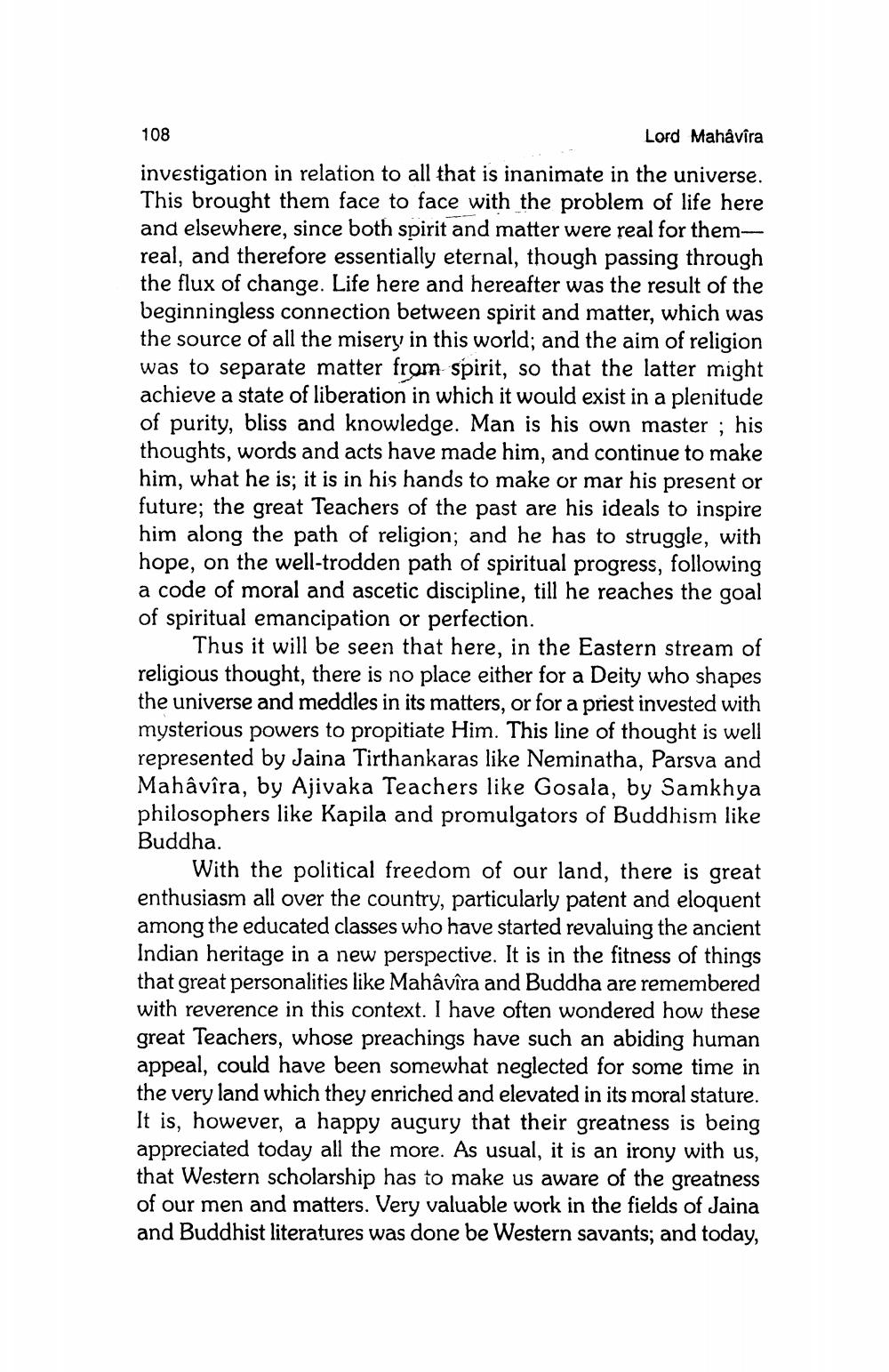________________
108
Lord Mahavira
investigation in relation to all that is inanimate in the universe. This brought them face to face with the problem of life here and elsewhere, since both spirit and matter were real for themreal, and therefore essentially eternal, though passing through the flux of change. Life here and hereafter was the result of the beginningless connection between spirit and matter, which was the source of all the misery in this world; and the aim of religion was to separate matter from spirit, so that the latter might achieve a state of liberation in which it would exist in a plenitude of purity, bliss and knowledge. Man is his own master ; his thoughts, words and acts have made him, and continue to make him, what he is, it is in his hands to make or mar his present or future; the great Teachers of the past are his ideals to inspire him along the path of religion; and he has to struggle, with hope, on the well-trodden path of spiritual progress, following a code of moral and ascetic discipline, till he reaches the goal of spiritual emancipation or perfection.
Thus it will be seen that here, in the Eastern stream of religious thought, there is no place either for a Deity who shapes the universe and meddles in its matters, or for a priest invested with mysterious powers to propitiate Him. This line of thought is well represented by Jaina Tirthankaras like Neminatha, Parsva and Mahâvîra, by Ajivaka Teachers like Gosala, by Samkhya philosophers like Kapila and promulgators of Buddhism like Buddha.
With the political freedom of our land, there is great enthusiasm all over the country, particularly patent and eloquent among the educated classes who have started revaluing the ancient Indian heritage in a new perspective. It is in the fitness of things that great personalities like Mahâvîra and Buddha are remembered with reverence in this context. I have often wondered how these great Teachers, whose preachings have such an abiding human appeal, could have been somewhat neglected for some time in the very land which they enriched and elevated in its moral stature. It is, however, a happy augury that their greatness is being appreciated today all the more. As usual, it is an irony with us, that Western scholarship has to make us aware of the greatness of our men and matters. Very valuable work in the fields of Jaina and Buddhist literatures was done be Western savants; and today,




